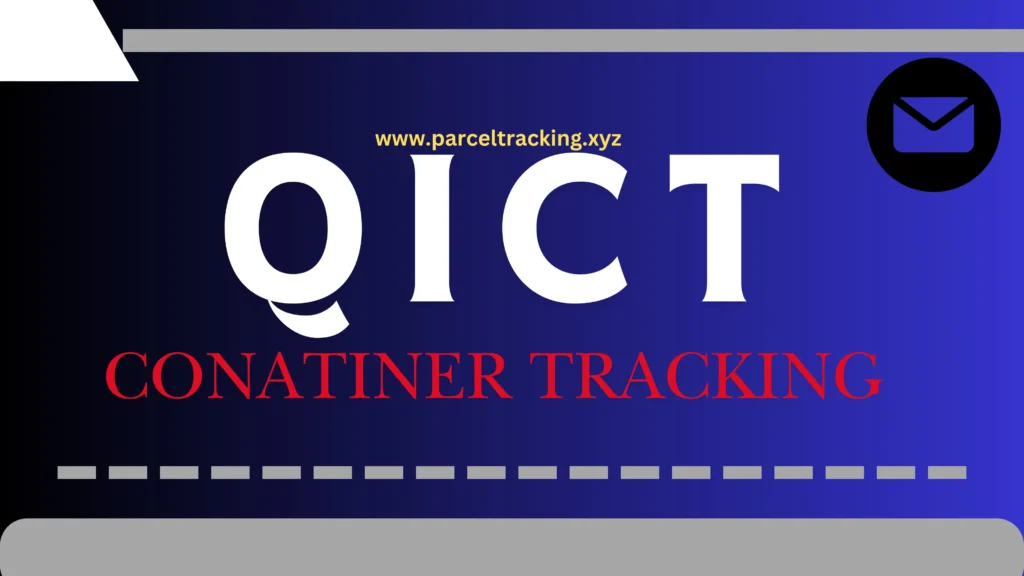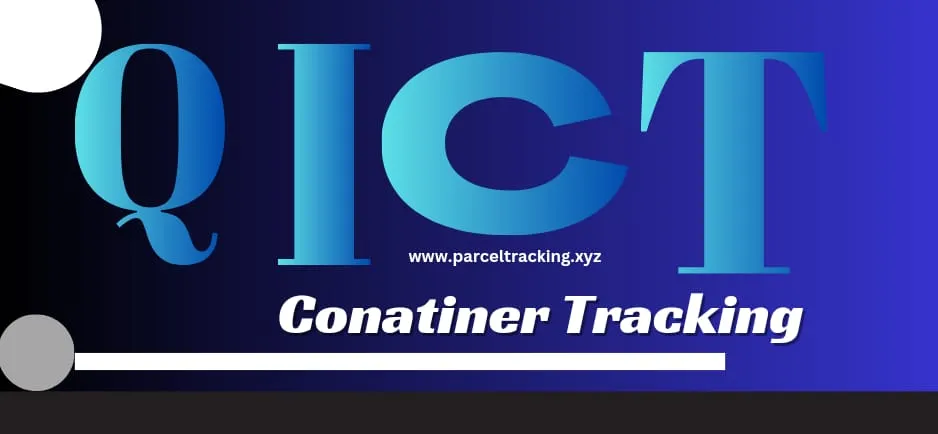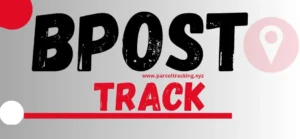Qict Container Tracking has revolutionized the way businesses manage global shipping and logistics. In today’s fast-paced world, knowing exactly where your shipment is at any moment has become crucial for companies of all sizes. QICT (Qasim International Container Terminal) represents a cutting-edge approach to tracking containers efficiently and accurately.
What is Container Tracking?
Container tracking is a smart technology that helps businesses and individuals monitor the location, status, and movement of shipping containers as they travel across oceans, countries, and continents. Think of it like a GPS for massive metal boxes that carry everything from electronics to clothing around the world.
How QICT Container Tracking Works
Key Technologies Behind Container Tracking
Container tracking relies on several important technologies:
- GPS Tracking: Uses satellite technology to pinpoint exact container locations
- RFID Tags: Small electronic chips that store and transmit container information
- IoT Sensors: Smart devices that monitor container conditions like temperature and humidity
Real-Time Monitoring Benefits
- Instant Location Updates: Know where your container is at any moment
- Condition Monitoring: Track environmental conditions of sensitive cargo
- Security Tracking: Prevent loss and unauthorized access
The QICT Tracking Process
QICT uses an advanced system that breaks down container tracking into several key steps:
- Registration: Each container receives a unique digital identifier
- Initial Scanning: Containers are logged when entering the terminal
- Continuous Tracking: Real-time updates throughout the shipping journey
- Arrival Confirmation: Precise notification when containers reach their destination
Technical Components of QICT Container Tracking
Hardware Elements
- Tracking Devices: Rugged GPS and RFID equipment
- Server Infrastructure: Powerful computers processing tracking data
- Network Systems: High-speed communication networks
Software Capabilities
QICT’s tracking software provides:
- Detailed shipment history
- Predictive arrival times
- Automated alert systems
- Comprehensive reporting tools
Benefits for Businesses
Why Companies Choose QICT Container Tracking
- Enhanced Visibility: Complete transparency in shipping processes
- Reduced Risk: Early detection of potential shipping issues
- Cost Efficiency: Minimize delays and optimize logistics
- Customer Satisfaction: Provide accurate shipping information
Economic Impact
Container tracking saves businesses significant money by:
- Reducing lost shipments
- Preventing unnecessary delays
- Improving overall supply chain efficiency
Challenges and Solutions
Common Tracking Challenges
- Signal Interference: Remote shipping locations
- Hardware Durability: Extreme weather conditions
- Data Security: Protecting sensitive shipping information
QICT’s Innovative Solutions
QICT addresses these challenges through:
- Advanced satellite communication
- Ruggedized tracking equipment
- Robust cybersecurity protocols
Future of Container Tracking
Emerging Technologies
- Artificial Intelligence: Predictive tracking algorithms
- Blockchain: Enhanced security and transparency
- 5G Networks: Faster, more reliable communication
Predicted Innovations
Experts predict container tracking will become:
- More automated
- More environmentally friendly
- More integrated with global supply chains
QICT Container Tracking represents the future of global logistics. By combining cutting-edge technology with user-friendly interfaces, it provides businesses with unprecedented visibility and control over their shipping operations.
Key Takeaways
- Real-time tracking is essential in modern shipping
- Technology continues to transform logistics
- QICT offers comprehensive tracking solutions
Additional Resources
- Official QICT Website
- Logistics Technology Journals
- Supply Chain Management Publications

Advanced Tracking Technologies Explained
Sensor Technology in Container Tracking
Imagine a shipping container as a high-tech mobile home for goods, equipped with multiple sensors that act like vigilant guardians. These sensors do much more than just track location – they’re sophisticated monitoring systems that provide a comprehensive health check for cargo throughout its journey.
Types of Advanced Sensors
- Temperature Sensors
- Critical for perishable goods like food and pharmaceuticals
- Can detect even slight temperature variations
- Trigger immediate alerts if conditions become unsafe
- Humidity Monitors
- Protect sensitive items from moisture damage
- Essential for electronics, textiles, and precision equipment
- Provide real-time humidity level tracking
- Shock and Vibration Detectors
- Identify potential mishandling during transportation
- Record impact forces and unexpected movements
- Help determine responsibility for cargo damage
Artificial Intelligence in Container Tracking
AI transforms container tracking from a simple location service into a predictive, intelligent system. By analyzing massive amounts of data, AI can:
- Predict Potential Delays: Using historical shipping data and current conditions
- Optimize Routing: Suggest most efficient shipping paths
- Risk Assessment: Identify potential problems before they occur
Global Impact of Advanced Container Tracking
Environmental Considerations
Container tracking isn’t just about logistics – it’s becoming a critical tool for environmental sustainability. Modern tracking systems help:
- Reduce Fuel Consumption: By optimizing shipping routes
- Minimize Waste: Through precise inventory management
- Lower Carbon Footprint: By improving overall transportation efficiency
Economic Implications
The global container tracking market is projected to grow significantly:
- Current Market Value: Approximately $5.6 billion
- Projected Growth: Expected to reach $12.3 billion by 2028
- Compound Annual Growth Rate: Around 17%
Cybersecurity in Container Tracking
Protecting Sensitive Shipping Data
As tracking systems become more advanced, cybersecurity becomes paramount. QICT’s tracking platform implements multiple layers of protection:
- Encryption Protocols
- Advanced encryption for all transmitted data
- Prevents unauthorized access and data interception
- Blockchain Integration
- Creates immutable shipping records
- Ensures data integrity and transparency
- Multi-Factor Authentication
- Strict access controls
- Prevents unauthorized system entry
Case Studies in Container Tracking
Real-World Success Stories
Pharmaceutical Supply Chain
A major pharmaceutical company used advanced tracking to:
- Ensure vaccine temperature integrity
- Reduce shipping losses by 40%
- Improve delivery precision
Fresh Produce Shipping
An international produce distributor implemented tracking to:
- Monitor produce condition in real-time
- Reduce spoilage by 35%
- Provide transparency to end consumers
Training and Human Expertise
While technology drives container tracking, human expertise remains crucial. Training programs now focus on:
- Data Interpretation: Understanding complex tracking information
- Technology Management: Operating advanced tracking systems
- Problem-Solving: Addressing unexpected logistical challenges

Emerging Global Trends
Future of Container Tracking
Experts predict several exciting developments:
- Increased Automation: Less human intervention
- Enhanced Predictive Capabilities: More accurate forecasting
- Seamless Integration: Between different tracking platforms
- Sustainable Technologies: Eco-friendly tracking solutions
Conclusion
Container tracking has evolved from a simple location service to a complex, intelligent system that drives global commerce. As technology continues to advance, we can expect even more remarkable innovations in how we monitor and manage global shipments.
Final Thoughts:
- Technology continues to transform logistics
- Data is becoming as valuable as the cargo itself
- Continuous innovation is the key to future success
Note: This comprehensive guide reflects industry standards as of 2024, providing insights into the cutting-edge world of container tracking.
QICT Container Tracking: Frequently Asked Questions
1. What Exactly is Container Tracking?
Container tracking is like a digital detective service for shipping containers. Imagine you’ve sent a package across the world – container tracking helps you know exactly where it is, just like tracking a pizza delivery, but for massive metal boxes carrying everything from toys to machinery. It uses advanced technologies like GPS, RFID tags, and smart sensors to provide real-time information about a container’s location, condition, and journey.
2. How Accurate is Container Tracking?
Modern container tracking is incredibly precise! These systems can pinpoint a container’s location within a few meters. Think of it like a super-accurate smartphone GPS, but for massive shipping containers. Most tracking systems provide:
- Exact geographical coordinates
- Current status of the container
- Environmental conditions inside the container
- Estimated time of arrival
3. Is Container Tracking Expensive?
The cost varies, but it’s becoming more affordable as technology improves. For many businesses, the benefits far outweigh the expenses:
- Prevents lost shipments
- Reduces transportation risks
- Saves money by optimizing routes
- Provides valuable data for future planning
Many shipping companies now include basic tracking as part of their standard service.
4. Can I Track My Personal Shipment?
Most shipping companies now offer tracking services for personal and business shipments. You typically:
- Receive a unique tracking number
- Enter the number on the company’s website
- Get real-time updates on your container’s journey
- Receive notifications about any changes or delays
5. What Technologies Enable Container Tracking?
Container tracking uses a mix of cutting-edge technologies:
- GPS Satellites: Provide global positioning
- RFID Tags: Small electronic chips storing container information
- IoT Sensors: Monitor temperature, humidity, and movement
- Cellular Networks: Transmit data from remote locations
- Cloud Computing: Process and store massive amounts of tracking information
6. How Secure is Container Tracking Data?
Security is a top priority in container tracking. Advanced systems use:
- Encryption: Protect data from unauthorized access
- Blockchain Technology: Create tamper-proof shipping records
- Multi-Factor Authentication: Prevent unauthorized system entry
- Secure Cloud Storage: Safeguard sensitive shipping information
7. What Types of Goods Can Be Tracked?
Almost anything! Container tracking is crucial for:
- Perishable Goods: Fresh produce, frozen foods
- Pharmaceuticals: Temperature-sensitive medicines
- Electronics: High-value, delicate equipment
- Industrial Machinery: Large, expensive components
- Automotive Parts: Complex manufacturing shipments
8. How Does Weather Impact Container Tracking?
Modern tracking systems are designed to work in extreme conditions:
- Waterproof Sensors: Operate in heavy rain
- Temperature-Resistant Equipment: Work in freezing or hot environments
- Satellite Backup: Ensure continuous tracking
- Redundant Communication Systems: Prevent signal loss
9. What Are the Environmental Benefits?
Container tracking contributes to environmental sustainability by:
- Optimizing Shipping Routes: Reduce fuel consumption
- Preventing Waste: Minimize damaged goods
- Improving Efficiency: Lower overall carbon footprint
- Enabling Better Resource Management: More precise logistics planning
10. What’s the Future of Container Tracking?
The future looks exciting! Expected developments include:
- Artificial Intelligence for predictive tracking
- More Detailed Sensors
- Faster Communication Networks
- Enhanced Cybersecurity
- Greater Automation
Container tracking will become even more intelligent, efficient, and environmentally friendly.
Disclaimer: Information reflects industry standards as of 2024.



